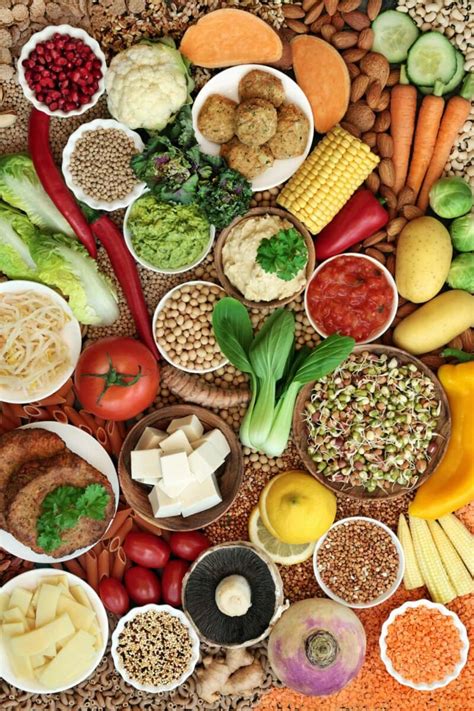Optimize peak performance: What nutrition provides sustained energy and mental clarity?

Fueling Your Best Self: The Nutrition-Performance Connection
In today’s demanding world, achieving peak performance isn’t just about hard work; it’s fundamentally about providing your body and brain with the right fuel. Optimal nutrition is the cornerstone of sustained energy, sharp mental clarity, and overall well-being. But what exactly does that look like? It’s more than just avoiding junk food; it’s about strategically incorporating specific nutrients that power your cells, balance your mood, and sharpen your focus.
Understanding the intricate link between what you eat and how you perform is the first step towards unlocking your full potential. This article will delve into the essential nutritional components that contribute to both physical stamina and cognitive prowess, helping you make informed choices to optimize your daily output.

The Energy Engines: Macronutrients for Sustained Power
To maintain consistent energy levels throughout the day, your body relies on a balanced intake of macronutrients: carbohydrates, proteins, and fats. However, not all sources are created equal.
Complex Carbohydrates: The Steady Release
Unlike simple sugars that cause rapid spikes and crashes, complex carbohydrates provide a slow, sustained release of glucose into the bloodstream. Foods like whole grains (oats, quinoa, brown rice), sweet potatoes, and legumes are rich in fiber, which aids in digestion and ensures a gradual energy supply, preventing the dreaded mid-afternoon slump.
Healthy Fats: Brain Fuel and Energy Storage
Often misunderstood, healthy fats are crucial for energy and brain function. Monounsaturated and polyunsaturated fats, found in avocados, nuts, seeds, and olive oil, are vital for hormone production, nutrient absorption, and provide a dense, long-lasting energy source. Omega-3 fatty acids, a type of polyunsaturated fat, are particularly important for cognitive health.

Lean Proteins: Repair, Build, and Stabilize
Proteins are essential for muscle repair, growth, and the production of enzymes and hormones. They also play a critical role in satiety and blood sugar stabilization, further contributing to sustained energy. Incorporate lean protein sources such as chicken breast, fish, eggs, Greek yogurt, lentils, and beans into every meal.
Sharpening the Mind: Nutrition for Mental Clarity
Your brain is an incredibly energy-intensive organ, demanding a constant supply of specific nutrients to function at its best. Mental clarity, focus, and memory are profoundly influenced by your dietary choices.
Omega-3 Fatty Acids: The Brain’s Best Friend
These essential fats, particularly DHA, are crucial for brain structure and function. They support neural communication, reduce inflammation, and are linked to improved memory and mood. Excellent sources include fatty fish (salmon, mackerel, sardines), flaxseeds, chia seeds, and walnuts.

Antioxidants: Protecting Your Brain Cells
Oxidative stress can impair cognitive function. Antioxidant-rich foods combat this by protecting brain cells from damage. Berries (blueberries, strawberries), leafy green vegetables (spinach, kale), dark chocolate, and brightly colored fruits and vegetables are packed with these protective compounds.
Vitamins and Minerals: The Cognitive Co-Factors
- B Vitamins: Essential for energy production in the brain and the synthesis of neurotransmitters. Found in whole grains, eggs, lean meats, and leafy greens.
- Iron: Crucial for oxygen transport to the brain. Deficiencies can lead to fatigue and impaired cognitive function. Sources include red meat, lentils, and spinach.
- Magnesium: Plays a role in nerve function, blood sugar control, and brain plasticity. Abundant in nuts, seeds, legumes, and dark leafy greens.
The Unsung Hero: Hydration and Electrolytes
Often overlooked, adequate hydration is fundamental for both physical energy and mental clarity. Even mild dehydration can lead to fatigue, reduced concentration, and headaches. Aim to drink plenty of water throughout the day. Electrolytes like sodium, potassium, and magnesium are also crucial for nerve function and fluid balance, particularly if you’re active. Coconut water, fruits, and vegetables can help replenish these.

Strategic Eating: Timing and Consistency
It’s not just what you eat, but also when and how consistently. Regular, balanced meals and snacks prevent drastic drops in blood sugar that can impair energy and focus. Aim for three balanced meals and 1-2 healthy snacks daily. Listen to your body’s hunger cues and avoid overeating, which can divert energy to digestion and lead to sluggishness.

Conclusion: A Holistic Approach to Peak Performance
Optimizing peak performance through nutrition is an ongoing journey that requires mindful choices. By prioritizing complex carbohydrates, healthy fats, lean proteins, omega-3s, antioxidants, and essential vitamins and minerals, all while staying adequately hydrated, you can provide your body and brain with the sustained energy and mental clarity needed to excel. Remember, small, consistent dietary improvements can lead to significant gains in your overall performance and well-being, empowering you to live and work at your highest potential.








